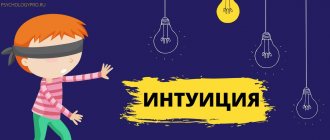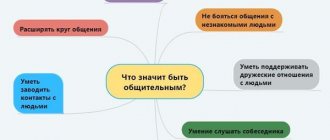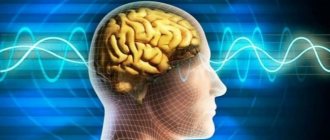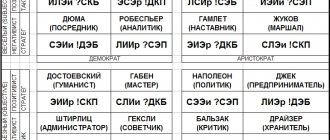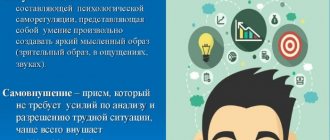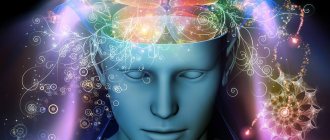What is intuition? Some people think this is a mirage or a myth. And someone that this is a voice from above. It is difficult to overestimate the importance of intuition. He who listens to intuition can become the darling of fate, easily get out of difficult and dangerous situations or even not get into them at all. But how many people hear their intuition? Do you have the ability to intuition and can it be developed? If these questions have ever interested you and you are ready to consider them from the perspective of a software engineer, welcome to cat.
Introduction
This article is one in a series of articles on the Theory of Evolution of Intelligence (TEI). The previous article can be viewed here: “The evolution of intelligence: why do robots need emotions.” It sets out the idea that emotions can be considered as a kind of intermediary between various sections of natural intelligence, which appeared in the course of evolution, as a result of the need for “soft” control of an individual’s behavior. As a conclusion, the idea is proposed that by carefully studying the natural mechanism of how emotions work, these solutions can also be used to control the behavior of intelligent robots.
Now let's turn our attention to another phenomenon: intuition.
Let us define the phenomenon of intuition as non-verbally expressed knowledge about what will happen in the future.
It can be noted that it is nonverbality in the expression of this knowledge that constitutes the greatest difficulty in understanding and accepting intuition signals by modern man.
It’s worth mentioning right away that the concept of “intuition”, according to the definition given above, excludes what is called “insight” or a decision by inspiration, the nature of which will be discussed in subsequent articles.
Here we are considering the phenomenon of a certain feeling, which [seems to] say something like that it is better not to deal with this person or it is better not to get involved in this situation. It can also be grief from the fact that I didn’t listen to this feeling and everything turned out badly, or joy from the fact that I trusted and everything happened successfully.
Etymology of the word[edit | edit code]
The desire to distinguish between two types, or methods, of knowledge appeared already in antiquity. The beginning of this can be found in Plato’s teaching about ideas, in which there is the concept of non-discursiveness of their comprehension. The Epicureans enshrined this phenomenon of direct knowledge or comprehension in the word επιβολή. Terms to designate two types of knowledge appeared in Philo of Alexandria, and then in Plotinus, who distinguished between επιβολή (immediate, instant comprehension (vision, insight)) and διεξοδικός λόγος (sequential, discursive knowledge, using logical inferences).
The translation of the concept of επιβολή into Latin by the term “intuitus” (from the verb intueri, meaning “to peer,” “to penetrate with one’s gaze (vision), “to instantly comprehend”) was made in the 5th century by Boethius.
In the 13th century, the German monk William of Mörbecke (1215–1286) repeated Boethius's translation, and the term "intuition" became part of Western European philosophical terminology.
Christian Wolf translated the term "intuitio, intuitus" into German with the word "Anschauung". Wolf also used the expression "anschauende Erkenntnis" - intuitive knowledge. It is in this sense that the term is used by Kant.
The English, French, Italians, and Spaniards translate Anschauung with the term “intuition” (French, English - intuition, Italian - intuizione, Spanish - intuicion). Kant's Anschauung is also translated into Russian by the term “contemplation” to convey the meaning of direct comprehension, non-discursiveness, instantaneous “seeing”.
Architecture of Intelligence
To understand what the nature of intuition is within the framework of the theory of the evolution of intelligence, let us first consider the historically established architecture of human intelligence postulated by TEI.
Since we can judge the intelligence of living beings mainly by its manifestations, and the manifestations of intelligence themselves in their totality give rise to behavior, it would be quite appropriate to divide the manifestations of intelligence according to the various sources of an individual’s behavior. TEI proposes to divide intelligence into 5 large sections, fundamentally different in their functionality.
This:
- instinctive behavior
Historically, the most ancient division of human intelligence is responsible for following the unchanging strategic goals of an individual’s life, strictly determined by his biological species.
- reflex behavior
The division of intelligence responsible for typical responses. It is very efficient, but not very intellectual. Its typical manifestation is accompanied by the motto: “First we did it, then we thought.” In situations where you need to react quickly and have no time to think, it comes in handy, for example, when you need to instantly pull your hand away from the fire. It is not innate, like instinctive, but acquired during the life of an individual.
- individual behavior
This division of intelligence is responsible for a set of typical reactions and habits that make the bearer of intelligence recognizable in addition to his appearance.
- communicative behavior
The division of intelligence responsible for how and in what manner an individual communicates in a group. For example, when you need to determine who will be in charge in the group and whether this is fair, how to coordinate your actions with other members of the group, how to warn them about danger or how not to pass the group by lucrative perks, and much more related to relationships in the group.
- reasonable behavior
This division is associated with abstract logical thinking. What we are actually accustomed to traditionally calling intelligence.
However, if intelligence is only a product of abstract logical thinking, then what about the other divisions? This is where TEI proposes to expand the definition of intelligence so that it covers all the divisions mentioned above. You can look at this in more detail in the article “The Evolution of Intelligence: The Beginning.”
Let us immediately note that the idea of dividing intelligence according to the sources of an individual’s behavior is not new, you can read about it, for example, here, the only difference is in the number of sources entered.
Individual behavior
Let us consider in more detail the division of intelligence responsible for individual behavior. TEI believes that it is based on many models of the surrounding world, built during the course of an individual’s life. Intelligence builds models to be able to predict what will happen in the future. After all, the ability to react correctly now based on a correct forecast is one of the important characteristics of the degree of development of intelligence.
So, individual behavior is [first of all, but not only] a set of intellectual models of the surrounding world that have the ability to predict.
Here, for example, is a typical model: a ball model that predicts [before throwing] what will happen if an individual throws the ball and where it will land. Thus, any training [including ball throwing] can be considered as making amendments to the model to make it more adequate to reality.
Intelligent models here mean an understanding close to the definition of models in machine learning. Models in machine learning are some kind of black boxes, the principle of which depends on the specific type of model chosen, of which there are dozens today. But they have a common feature - this is a learning mode and a prediction mode. In the training mode, a set of training and test data is supplied as input, and the model looks for some kind of pattern in them. In prediction mode, based on a set of initial data passed to the input, the model is able to predict what will happen as a result, and this set was not necessarily contained in the training set.
But there is a difference: models in machine learning are implemented in digital computers, while models of natural intelligence, built on living neuron cells, can rather be considered analogue.
If we draw parallels with computer technology, we can say that these models are similar to analog computers. We have recently become accustomed to dealing only with digital technology. However, we can remember that it was preceded by analog computers, which now most likely can only be seen in a museum.
Dornier 240 Analog computer https://www.emuseum-tettnang.de/labels/salon2/analogrechner/dornier_do240
Analog computers could perform complex calculations much faster than their digital counterparts, but they were not universal. For each task, for example, to calculate a ballistic trajectory, it was necessary to build its own circuit. And with the increase in the productivity of digital computers, analog ones gave way to them. Those interested can see more details here.
So, to understand the nature of intuition, let's take a closer look at the patterns created by natural intelligence. Since their main function is to make forecasts, for definiteness we will call them predictive .
Predictive models
How did this division of intelligence appear in living beings? Most likely, from the vital need of these creatures for predictions. Any predator needs to be able to accurately predict where it will land as a result of a jump, otherwise it will miss and be left without food.
Akella missed the mark, he can no longer be our leader
The Jungle Book by R. Kipling
The same can be said about his sacrifice. If the object of a predator's hunt can itself predict where the pursuer's jump is directed, then it is quite possible that he will be able, by adjusting his behavior, to escape and stay alive. As a result, we can view each hunt [including] as a competition between versions of the predictive intelligence unit. Whose version predicts better, faster and more accurately is the one who survives.
However, an individual’s intelligence cannot do without just one predictive model for all immediately surrounding predators (or herbivores) if he wants to predict everyone well at once. This means that a set of models is needed, and this in turn requires the correct comparison of each predictive model with the observed phenomenon of the surrounding world. Then the division of individual behavior is also supplemented with cognitive functionality .
Let us also note that the result of the model’s prediction is expressed non-verbally, in the form of a certain feeling of correctness that is difficult to express in words. For example, the correctness of the throw or the correctness of the choice.
What does all this have to do with intuition? The most direct. Let us recall such signs of intuition as non-verbality [in the form of a certain sensation] and a correct forecast of what will happen in the future. Thus, a certain part (if not all) of the manifestations of intuition can be safely attributed to the work of a very archaic, but extremely useful subdivision of the intellect in constructing and selecting predictive models of the world surrounding the individual.
Intuition in Science
From the point of view of science, intuition was denied for a long time, considering it some kind of paranormal ability. Only in the middle of the last century, the American sociologist James Staunton decided to conduct research related to the sixth sense. He took as a basis about 250 accidents that occurred at different times on trains and planes. Staunton decided to compare data from flights that ended safely with information from trains and planes that were involved in an accident.
If the outcome of the trip is favorable, the transport is usually 76% full, and in case of disasters - 61%. In approximately 15% of cases, passengers rescheduled their trips or canceled them altogether for some reason. These 15% of people trusted their unconscious feelings, which saved their lives.
Perhaps they felt slightly unwell, or decided to reschedule their trip due to a sudden urgent matter. Intuition manifests itself in different forms. The rest of the people succumbed to a more logical and rational approach, which is why they suffered.
Later, American scientists conducted an experiment with maps. 16 people were given a winning card in advance, for which they gave a good cash prize. Then they were asked to blindly choose one card at a time. It was noted that the person who chose the desired card had a nervous system that worked as usual, while the losers began to worry even at the moment of choice. Thus, the nervous system gave alarm signals in advance.
The phenomenon of bias
Probably, many of us have encountered bias in our own experience, both in relation to ourselves personally and have had the opportunity to observe this phenomenon in the relationships of our environment. How can bias be interpreted within the framework of TEI?
This is a false comparison of a [possibly correct] predictive model and an observed phenomenon.
What exactly is bias? When a person [and not only] is assigned [and prescribed] behavior that is not characteristic of him. That is, bias can be considered as a kind of antipode to the phenomenon of correctly working intuition.
An argument can be made in favor of this interpretation that, often, the reasons for a biased attitude are difficult to explain in words, that is, this phenomenon is most likely also expressed non-verbally.
Why does false model selection occur? It can be assumed that due to an effect similar to overtraining of a neural network in machine learning.
So, if intuition is [at a minimum] an adequate choice of a working predictive model, then bias is an inadequate choice of [maybe] a working predictive model [but of a completely different person] and, as a consequence, following completely false predictions of the behavior of this person.
Somehow you always turn out to be right
© Photo Images
How often have you found yourself thinking, “I told you so?”
" or
" My God, how did I know that
"?
Such situations are a clear sign that you are making the right choices for yourself
or are able to bring clarity to the lives of others.
Even if you don't say it out loud, you notice that your instincts about people, ideas, and path choices are almost always correct.
Continue to listen to your intuition when your sixth sense pulls you in a certain direction.
conclusions
As a result, what questions can be answered based on the description of intuition within the framework of TEI?
Do all people have intuition?
Does everyone have intuition or is it the lot of a select few? If we proceed from the conclusion based on TEI that intuition is the work of a certain subdivision of human intelligence, then yes, absolutely everyone has intuition.
Can intuition be wrong?
We often wonder whether intuition is a completely reliable source or whether it can be wrong.
If we assume that intuition is the result of the work of one of the non-verbal predictive models, then it, of course, can be wrong, just as we can miss when throwing a ball into a basket.
Do animals have intuition?
But what about intuition in animals? Of course, animals have intuition, starting from the 2nd evolutionary generation of intelligence (more details about generations of intelligence can be found in the article Evolution of Intelligence: the Beginning), and they use it much more effectively than people due to the underdevelopment of abstract logical thinking and, as a consequence, with the absence of the doubts that torment us so much.
How to develop intuition?
It turns out that if intuition can be wrong, then it can somehow be developed? In theory, intuition can be developed by actively using the corresponding subdivision of the intellect. Where is it actively used? In all cases when we successfully predict something non-verbally.
Yes, we no longer engage in hunting, tracking down animals in everyday life, but there are still many types of activities where a non-verbal forecast is needed.
These are any games where you need to accurately hit the target, such as basketball, volleyball or shooting (for example, archery) or any activity where you need to accurately predict the future position of the body, ranging from diving from a height to exotic aerial acrobatics.
Aerobatics
So, it turns out that [although this may seem strange], when your child successfully plays football or volleyball, he also trains his intellect, and also develops intuition as an integral part of it.
A special message to readers with developed intuition: if you have your own opinion about what helped you develop your intuition, don’t hesitate to share it in the comments.
